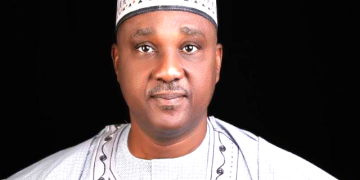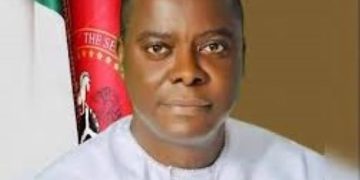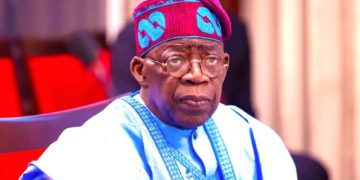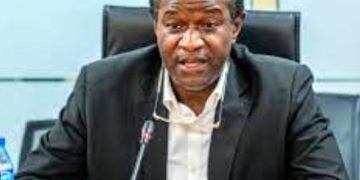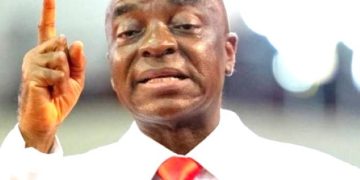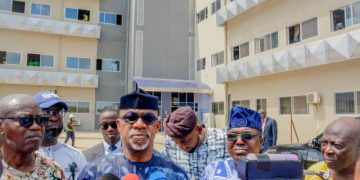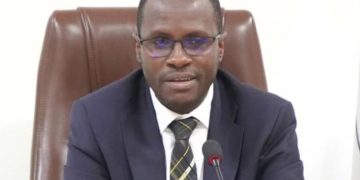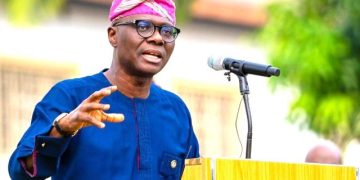By Segun Otokiti
The Leader of the Senate, Opeyemi Bamidele, last Wednesday dismissed claims suggesting any move to impeach Senate President Godswill Akpabio, describing such reports as unfounded and capable of sowing confusion within the upper chamber. But in spite of the dismissal, one issue remains clear – all isn’t all well with the leadership of the upper chamber since ascension of Senator Godswill Akpabio as its captain, particularly given umpteenth time such threats have been occurring.
Why the incessant threats or rumours of it? Any observant citizen will want to know. Many have argued that the Senate President is frequently in the news regarding impeachment due to a combination of his leadership style, political dynamics within the Nigerian Senate, and specific controversies that have fueled speculation and actual, albeit denied, plots by some senators and public activists.
Of all the reasons cited for the his unstable leadership of the Red Chamber, and therefore constant hums of impeachment, an electoral fraud allegations that brought him to the Senate seems to be the foundation of his problem as its leader. Civil society organizations, including Amnesty International Nigeria and the Centre for Democracy and Development (CDD), had at a time demanded his resignation following a court ruling that affirmed the conviction of an electoral officer for fraud in the 2019 election that brought Akpabio to the Senate. And with that electoral albatross, many of his peers, given their body languages as well as utterances, see him as liability than asset and wary of giving him the deserved respect and support.
Political and publics analysts believe other reasons for the unceasing impeachment threats against him have all derived from the original alleged electoral fraud that brought him in. Akpabio, a former Akwa Ibom governor and ex-Minister of Niger Delta Affairs, emerged Senate President in June 2023 after securing the endorsement of President Tinubu and key APC stakeholders.
His victory over Senator Abdulaziz Yari of Zamfara was widely viewed as a triumph for the Tinubu camp, which sought to entrench loyalty and stability in the legislative arm.
However, barely two months into the 10th Senate, reports surfaced of a plot to impeach him. Some senators accused him of running the chamber as a “rubber stamp” of the executive arm, fearing that under his leadership, the Senate might lose its independence.
Although Akpabio dismissed such claims as “politically motivated,” analysts said they underscore an enduring debate about the legislature’s autonomy in Nigeria’s presidential system.
Perceived as “Rubber Stamp” legislature, critics, particularly some opposition senators, have accused Akpabio of running the Senate as a “rubber stamp” for the executive arm of government, thereby compromising the legislature’s independence. This perception of excessive closeness to President Bola Tinubu has been a recurring source of friction and speculation.
Reports have also consistently surfaced about an alleged “unease” among some lawmakers regarding his leadership approach, with sources indicating that tempers have flared during closed-door sessions over various issues, including the unilateral announcement of the Senate’s annual recess. This has led to an ongoing struggle for influence and stability within the chamber.
There is also the problem, allegedly, that Akpabio’s public comments have occasionally sparked outrage and calls for his impeachment from activists and the public. For example, a remark that senators would be “eating” while citizens were protesting against the economic hardship generated significant negative reactions.
Besides, as is common in Nigerian politics, Akpabio’s position is a result of a power struggle within the ruling All Progressives Congress (APC). His emergence was backed by the president to ensure stability, which in turn created a disgruntled faction of lawmakers who supported his rival, Senator Abdulaziz Yari. These underlying political rivalries contribute to persistent rumors and actual, but ultimately foiled, plots.
Worse still, Akpabio has faced serious allegations from political opponents and a former senator, including claims related to an alleged killing and organ harvesting, which, while dismissed as unfounded by Akpabio and his supporters, generate significant media attention and calls for probe.
In what appears like adding fuel to a burning fire, revelation by former Abia State governor and current senator, Orji Uzor Kalu last week’s claim of recent attempt to impeach Senate President Godswill Akpabio but was, according to him, thwarted through the intervention of lawmakers committed to protecting the integrity and stability of the 10th Senate brought him heads knocking with the Senate Leader Opeyemi Bamidele, with the latter dismissing any impeachment threat, either now or before.
But speaking with journalists last week at the National Assembly Complex in Abuja, Kalu confirmed that rumours of a plot to unseat Akpabio were not unfounded, affirming the plan was neutralized before it could gain traction. “Though there were attempts, we didn’t allow that to happen. That is why I always say we are one big family, and it is not going to happen. The Senate is united behind its leadership,” he said.
He stressed that the upper chamber remains focused on its constitutional duty of lawmaking and oversight, while supporting President Bola Ahmed Tinubu’s administration in addressing the country’s socio-economic challenges.
“Whatever the problem is, the Senate is more interested in making laws that will help President Tinubu overcome the economic difficulties our people are going through. We are more interested in the people. The legislations we are making are pro-people, and we are focused on ensuring Nigerians can eat three times a day,” Kalu said.
Sources familiar with internal discussions said the impeachment attempt was not an organized rebellion but a loose alliance of disenchanted lawmakers, both within the APC and the opposition. Some lawmakers reportedly felt sidelined in committee appointments and accused Akpabio of concentrating power in a small circle of loyalists. Others complained about insufficient consultation on sensitive issues such as budget appropriation and national security briefings.
Growing unease in the upper chamber
Kalu’s comments came after weeks of speculation about unease within the Senate. Reports had suggested that some lawmakers, particularly in the ruling All Progressives Congress (APC), were uncomfortable with Akpabio’s leadership style.
In July 2025, tension escalated after Akpabio and Senate Leader Opeyemi Bamidele (APC, Ekiti Central) reportedly clashed during a closed-door session. The disagreement, sources said, centred on procedural issues and leadership communication but later snowballed into a broader internal dispute seen as a sign of discontent within the APC caucus.
According to insiders, the misunderstanding began after Akpabio unilaterally announced that the Senate would proceed on its annual recess, a decision that surprised some principal officers. Critics argued that such a decision should have been discussed collectively.
A senator, who spoke on condition of anonymity, said the matter degenerated into a heated exchange over whether the Senate had fulfilled its constitutional obligation of sitting for at least 181 legislative days in the year.
While Bamidele’s observation was said to be technically correct, many senators were surprised that he challenged the Senate President so openly, an unusual show of dissent within the ruling party.
Political observers interpreted the development as a growing dissatisfaction with Akpabio’s handling of internal affairs.
This was not the first time reports of friction between Akpabio and key members of the Senate had surfaced. In November 2024, there were claims of a near-physical confrontation between Akpabio and Bamidele, allegations which the Senate Leader’s office swiftly dismissed as “fake news” aimed at discrediting the upper chamber. In a statement issued then by the Directorate of Media and Public Affairs of Bamidele’s office, he denied ever engaging in physical or verbal altercations throughout his political career, describing the story as fabricated by detractors intent on sowing division in the Senate.
Nevertheless, political watchers noted that the recurring reports of tension within the APC caucus reflected deeper ideological and political rifts. Analysts said the Senate, traditionally seen as the stabilizing force in Nigeria’s democracy, appears to be struggling with internal power plays reminiscent of previous assemblies.
Antecedents of Senate presidency power struggles
Nigeria’s Senate has a history of leadership tussles that have destabilized its operations. The 5th Senate (1999-2003) witnessed the successive removal of Evans Enwerem and Chuba Okadigbo, while the 8th Senate (2015-2019) led by Bukola Saraki was marked by sharp divisions after his emergence defied his party’s preference. That crisis triggered prolonged tension between the executive and legislature, with Saraki’s leadership constantly threatened by impeachment rumours.
Akpabio walking a tightrope – Analysts
A political analyst, Jackson Lekan Ojo, says Akpabio is walking a tightrope. “He has to be careful balancing loyalty to the executive with defending the autonomy of the legislature to avoid a bad outcome,” Ojo said. He noted that Akpabio’s close alignment with President Tinubu, though consistent with the APC’s Renewed Hope agenda, could erode legislative checks and balances if not properly managed. “By foiling the plot against Akpabio, the Senate may have restored temporary calm, but underlying tensions remain. The challenge ahead is consolidating unity while maintaining genuine independence, a balance that has eluded many parliaments in Nigeria’s democratic history,” he added.
Another analyst, Aminu Yakudima, said the failed plot reflects the volatility of Nigeria’s political system, where shifting loyalties and power realignments are common. “The stakes are particularly high given the current economic hardship and widespread discontent. But an unstable Senate could weaken policy consistency and delay key reforms such as the 2026 budget, energy sector restructuring, and constitutional amendments,” he said.
Public comments on the incessant claims of impeachment against the Senate President are sharply divided, with the Senate leadership and allies consistently denying any plot, while critics – including some lawmakers and civil society groups – point to his leadership style and various allegations as grounds for removal. The claims are often dismissed as “fake news” by the Senate, but underlying tensions and specific accusations persist.
However, the Senate leadership, including the Senate Leader Opeyemi Bamidele and the Senate Spokesman, has consistently and vehemently dismissed all impeachment reports as “false,” “mischievous,” and “baseless”. They maintain the Senate is united and focused on national issues.
Akpabio himself has described the reports as “total fake news” often generated by social media for traffic or by mischief-makers. Propping him in the struggle are regional and party supporters, including groups like the Niger Delta youths and the Northern Senators Forum which have reaffirmed their support, viewing attacks on Akpabio as a threat to regional balance or the stability of the current administration.
Supporters argue that any attempt to destabilize the Senate leadership would widen the nation’s divisions and negatively impact national stability and President Bola Tinubu’s agenda. Akpabio have been made by several individuals and groups, often in denial of such plots or in response to specific controversies.
Denials and Support
Godswill Akpabio himself has repeatedly dismissed the reports of impeachment as “fake news” and “baseless claims” fabricated by mischief-makers, asserting that the Senate is united.
Senator Opeyemi Bamidele, the Senate Majority Leader, refuted the claims and urged unity among the lawmakers.
Senator Abdulaziz Yar’Adua, Chairman of the Northern Senators Forum, denied any dissatisfaction or movement against Akpabio among northern senators, urging the public to disregard the rumors.
Senator Orji Uzor Kalu, former Senate Chief Whip, acknowledged “attempts” but described them as a minor “family misunderstanding” that was not allowed to materialize.
The Presidency, through the Presidential Adviser on National Assembly Matters (Senate) Senator Basheer Lado, has also denied targeting Akpabio for impeachment and dismissed the rumors of a plot.
Niger Delta youth groups have issued strong statements in support of Akpabio, vowing to resist any attempts to impeach him, viewing it as an attack on Southern leadership.
Comments and calls for Impeachment by notable critics, analysts
Aisha Yesufu, a prominent activist, called for Akpabio’s impeachment following his controversial remark that senators would be “eating” (referring to a break allowance) while Nigerians were protesting economic hardship.
Shehu Sani, a former Kaduna Central Senator, explained the procedural steps for impeachment on X (formerly Twitter), warning that a failed attempt could lead to the initiating senator’s suspension.
Senator Natasha Akpoti-Uduaghan was involved in a major controversy with Akpabio, including allegations of sexual harassment (which the Senate panel rejected on procedural grounds) and an alleged plot to arrest her, leading to her temporary suspension. This situation generated calls from the Coalition of United Political Parties (CUPP) for an end to what they perceived as a “grave threat to Nigeria’s democracy” and an attempt to silence her.
Impeachment threats in developed democracies across the globe
Just as in Nigeria, leaders of legislative chambers in developed democracies also cause ceaseless impeachment threats by engaging in actions that erode public and political trust, such as corruption, abuse of power, and disregard for the rule of law.
Specific actions that can lead to such threats include: Engaging in corrupt practices – corruption and financial unaccountability are primary triggers for impeachment proceedings. When leaders are perceived as abusing their office for personal or group financial gain, it undermines public confidence and provides substantial grounds for removal efforts.
Abusing power and acting in an authoritarian manner: Impeachment threats can arise if a leader oversteps their constitutional authority, suppresses dissent, or makes indiscriminate use of their powers. This includes using legislative power as a bargaining chip for personal gain or to target political opponents.
Undermining democratic institutions and the rule of law: Disregarding due process, holding sittings outside of designated chambers, or attempting to compromise the judiciary can lead to a systemic crisis and calls for removal.
Failure to maintain party support and public confidence: A leader who loses the support of their own party members or the broader public becomes vulnerable. Large-scale public protests and significant scandals often accompany a loss of political support within the legislature, intensifying calls for impeachment.
Subordinating the legislature to the executive: When a legislative leader appears to be a mere rubber stamp for the executive branch, or is seen as acting under external influence (such as political godfathers), other lawmakers may view them as having breached their public trust and the principle of separation of powers.
Engagement in legislative fraud: Actions such as manipulating procedural rules, improperly convening meetings, or ignoring established constitutional processes for personal or partisan advantage can be seen as “legislative fraud” and provide a strong basis for impeachment threats.
Demonstrating incompetence during a crisis: In times of crisis, a leader’s poor performance, denial, or failure to address major issues (e.g., an economic or public health crisis) can lead to widespread public disaffection and numerous calls for their removal.
Ultimately, these actions create a perception of “gross misconduct” or a breach of public trust, which are the fundamental justifications for impeachment in most democratic systems.
As it stands today in Nigeria, all the causes for impeachment of legislature’s leaders in advanced democracies as enumerated above are rife with the Nigerian legislative chambers, but the general consensus from within the Senate leadership and the Presidency has been one of dismissal, unity, and support for Akpabio, while calls for his impeachment have largely come from external activists or stemmed from specific, highly publicized controversies involving other senators.
Despite the frequent rumours and alleged plots, the Senate leadership has consistently dismissed them as “false, misleading, and mischievous,” with the Senate even passing a vote of confidence in his leadership to quell the speculations. The reality is that while there is underlying tension and political maneuvering, there has not been a formal, successful impeachment proceeding against him.



